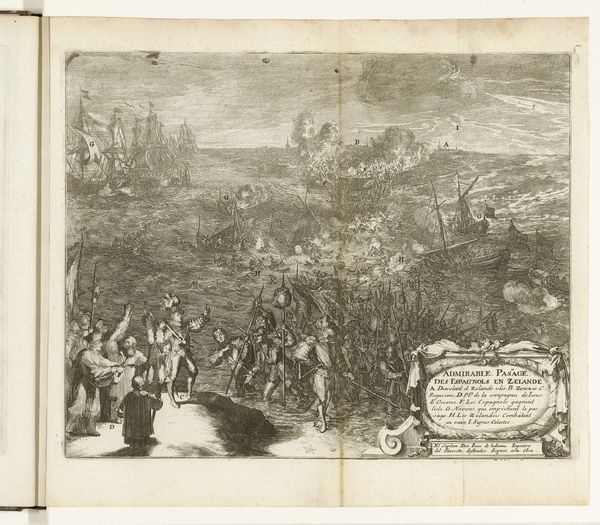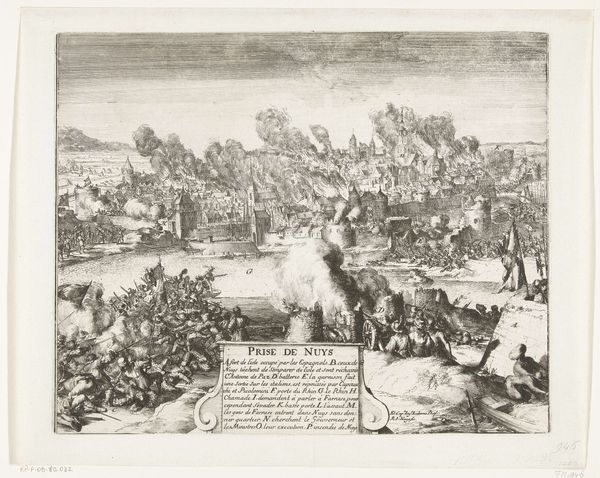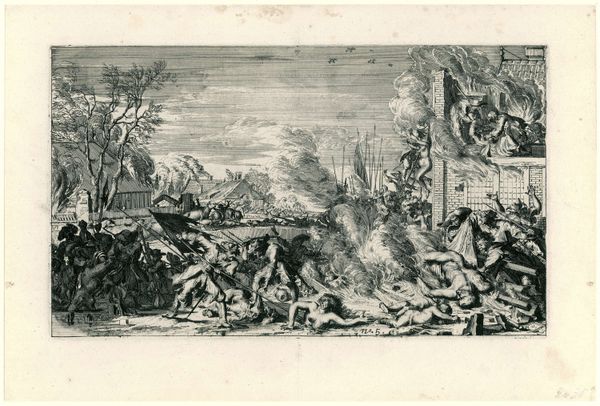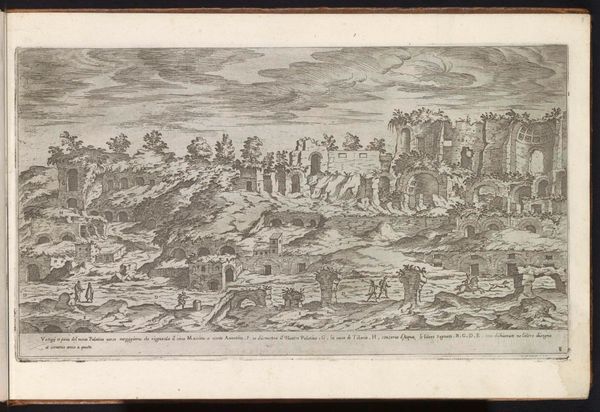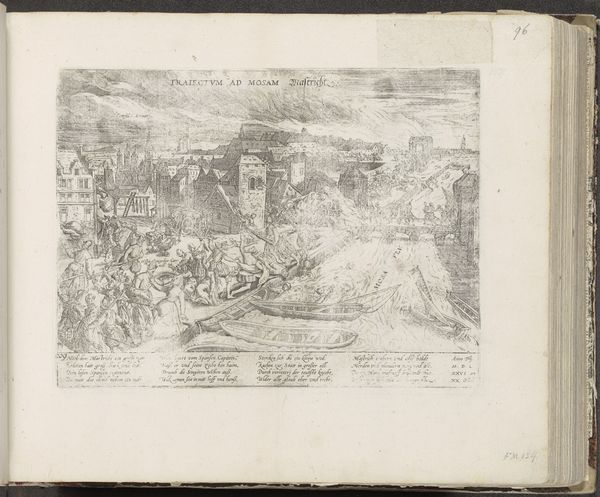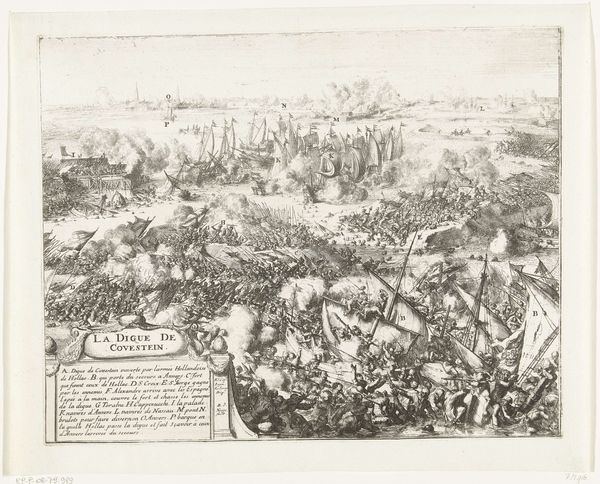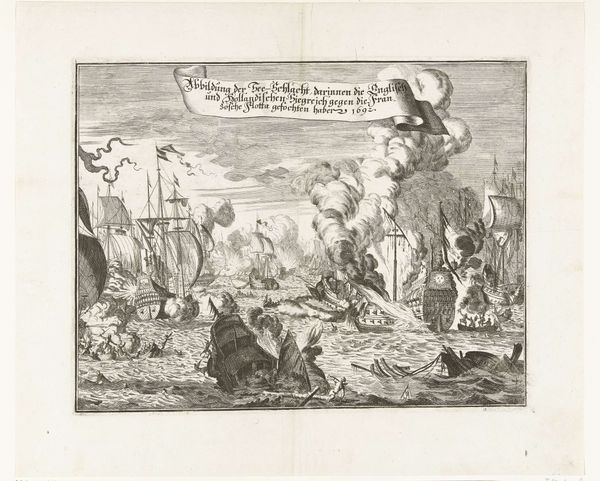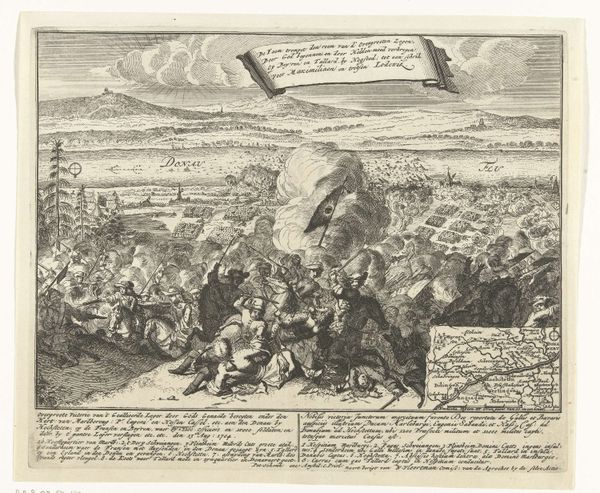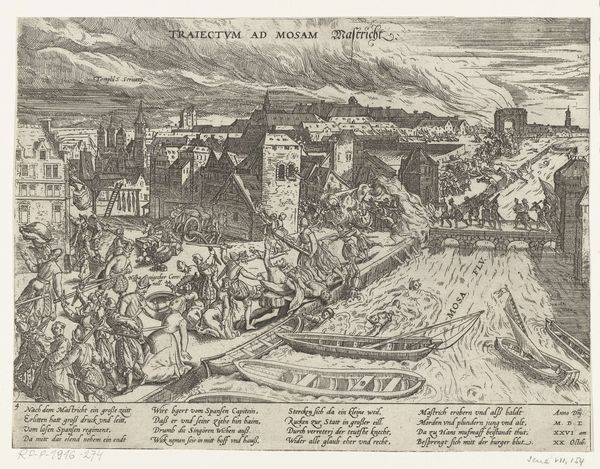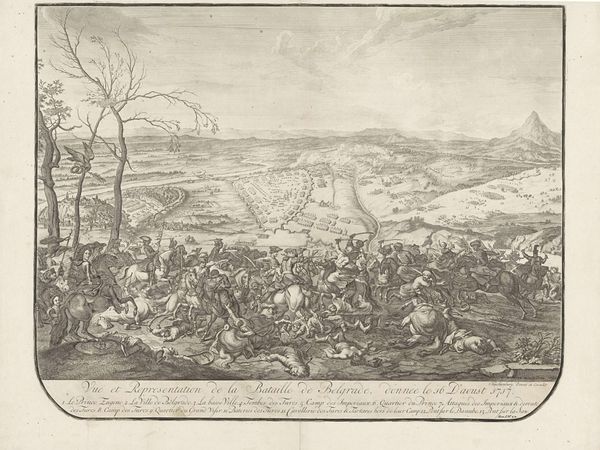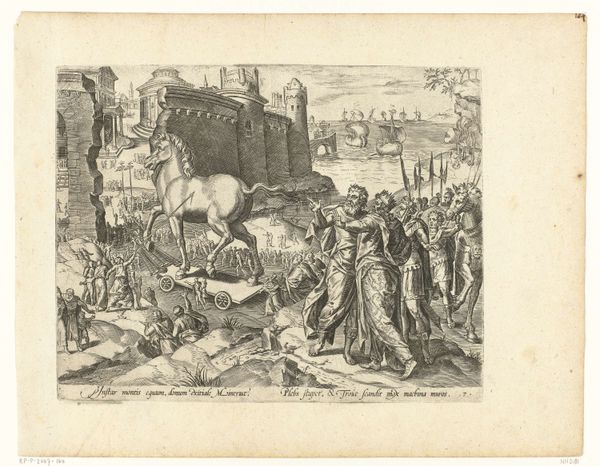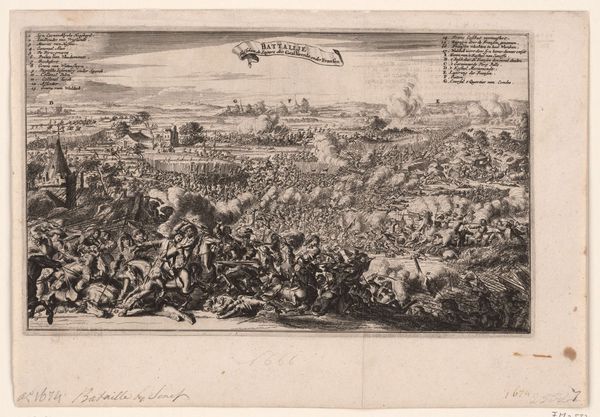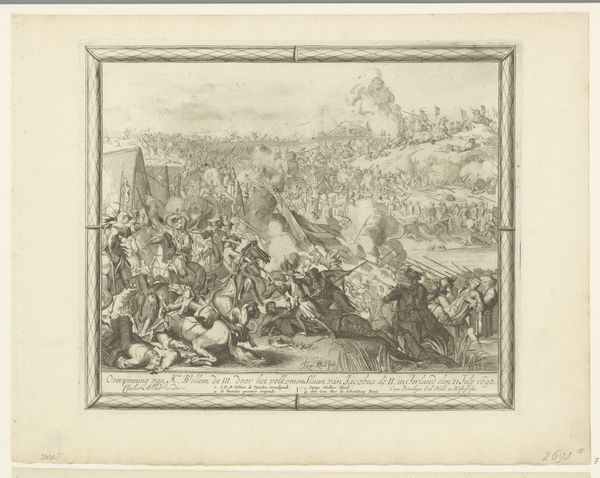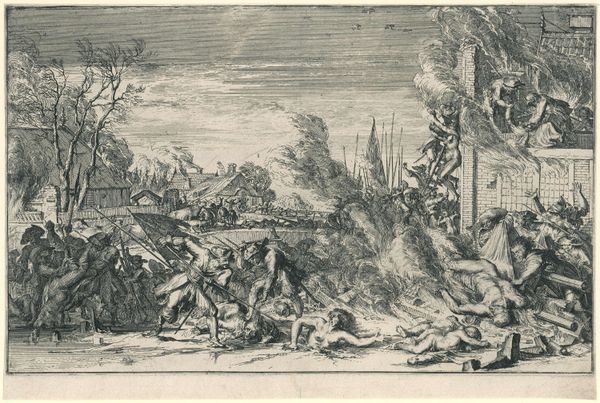
Nachtelijk tocht van Spaanse soldaten door het water naar Duiveland, 1575 1670 - 1699
0:00
0:00
romeyndehooghe
Rijksmuseum
print, etching
#
narrative-art
#
baroque
# print
#
etching
#
landscape
#
history-painting
Dimensions: height 265 mm, width 334 mm
Copyright: Rijks Museum: Open Domain
Romeyn de Hooghe created this print of the Spanish army’s 1575 march to Duiveland, using etching and engraving techniques. These processes, dating back to the early 16th century, involve working an image into a metal plate, which is then inked and pressed onto paper. De Hooghe's choice of printmaking is significant. Unlike painting or sculpture, prints can be reproduced and distributed widely, making them ideal for disseminating information or propaganda. The dense lines and textures, achieved through careful application of acid and the engraver's burin, create a dramatic scene filled with chaotic movement. The material itself - humble paper and ink - belies the immense labor and skill required to produce such a detailed image. Etching and engraving demanded specialized knowledge, tools, and workshops, reflecting the growing commercialization of art in the 17th century. This print blurs the boundaries between art, craft, and mass communication, revealing the social and political power of images in early modern Europe.
Comments
No comments
Be the first to comment and join the conversation on the ultimate creative platform.
